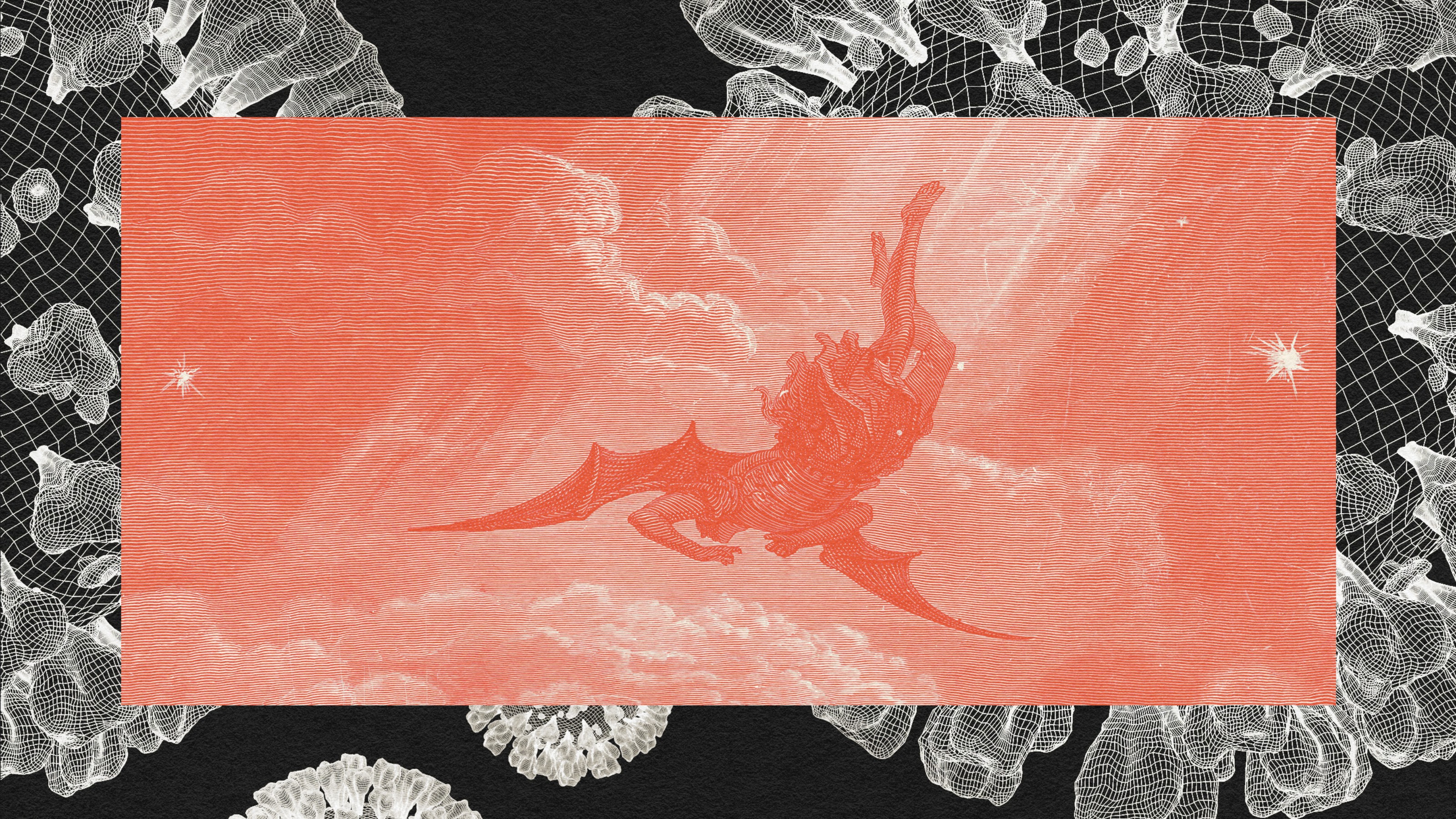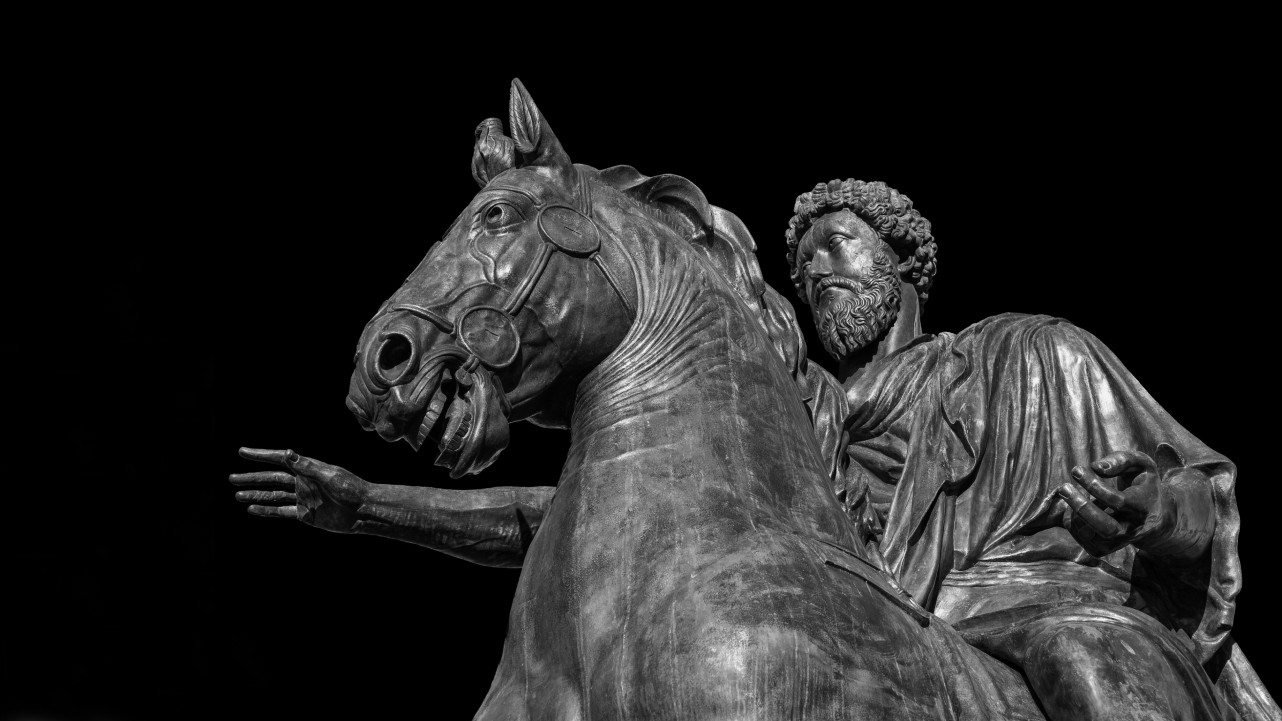Why secular humanism can do what atheism can’t

Photo by Matt Collamer on Unsplash
- Atheism is increasingly popular, but the lack of an organized community around it can be problematic.
- The decline in social capital once offered by religion can cause severe problems.
- Secular humanism can offer both community and meaning, but it has also attracted controversy.
People aren’t as religious as they used to be.
The decline of these traditional belief systems is a tragedy for some and a cause for celebration for others. There is an element of it that causes a problem for everybody, though. As the old religious ties that bind decline, the communities associated with them start to go too. This isn’t to say that a neighborhood without a church will immediately start to decay into poverty, violence, and misery but that the social element of these organizations was essential to people and without it, we’ve got problems.
Twenty years ago, Robert Putnam argued that Americans were starting to suffer from too much alone time and too little community connection in his book Bowling Alone. He wouldn’t be shocked by what we see today.
Twenty-two percent of millennials say they have no friends, and the elderly are cripplingly lonely too. People aren’t as involved in community organizations as they used to be. These things are terrible for both our health and communities. While the reasons for this aren’t well known, the decline in social capital Putnam described probably has something to do with it.
While the decline of religious belief and attendance at mainstream churches in general isn’t the only reason for this decline, the traditional place of religion in American life means that lower church attendance can be a destabilizing factor. Say what you will about churches, they were great generators of social capital.
But nothing in that theory of social capital demands that we go back to the previous model of generating said capital. New systems that create community can do the trick too. As old ideas and ways of connecting with others fall apart, new ones rise to replace them; among them is the famous and infamous philosophy of secular humanism.
What is secular humanism?
The people over at the Center for Inquiry define secular humanism as “A comprehensive, nonreligious lifestance.” They further explain this by saying:
“Secular humanism is a lifestance, or what Council for Secular Humanism founder Paul Kurtz has termed a eupraxsophy: a body of principles suitable for orienting a complete human life. As a secular lifestance, secular humanism incorporates the Enlightenment principle of individualism, which celebrates emancipating the individual from traditional controls by family, church, and state, increasingly empowering each of us to set the terms of his or her own life.”
The American Humanist Association has a similar definition, calling the life stance:
“A progressive philosophy of life that, without theism and other supernatural beliefs, affirms our ability and responsibility to lead ethical lives of personal fulfillment that aspire to the greater good of humanity.”
How is this different from atheism?
Atheism means one thing and one thing only, the non-belief in any deity. It doesn’t mean anything further than that. This is how you can get people as different as Joseph Stalin, Ayn Rand, and Carl Sagan to all fit into the Atheist category.
While people of all persuasions try to argue that this non-belief necessarily leads a non-believer to support other positions, these arguments fall short. If atheism did inevitably lead to other specific believes and values, the diversity of ideologies seen in the above three examples should be impossible.
There isn’t even just one kind of atheism; there are several based on precisely what a person doesn’t believe in and how they came to that stance.
Secular humanism, on the other hand, makes several claims. It advances a consequentialist ethics system; it affirms the values of self-realization, cosmopolitanism, individualism, and critical thinking; it places a value on social justice; and it praises a dedication to the use of reason and the search for truth.
These stances are ones that many atheists will support, but not ones that they must support. Many will reject them outright. In this way, while secular humanists are typically atheistic, non-theistic, or agnostic, not all atheists, agnostics, or non-theists are going to be secular humanists.
So, is Secular humanism a religion or what?
No, but this is a matter of some controversy in the United States.
The Center for Inquiry’s editor Tom Flynn explains why secular humanism isn’t a religion in an essay defining the life stance. He first defines religion as a “life stance that includes at minimum a belief in the existence and fundamental importance of a realm transcending that of ordinary experience.”
He then points out that, “because it lacks any reliance on (or acceptance of) the transcendent, secular humanism is not — and cannot be — a religion.”
While this might not be the end-all definition of “religion” for some people, it is a convincing one. If applied properly, it would rule secular humanism out on any list of religions. This hasn’t stopped people from saying it is a religion though. Many people and organizations have argued and still argue that it is a religion out to convert all the youth in America and destroy western civilization as we know it.
Several court cases have considered the question of whether it counts as a “religion” for legal purposes. One judge in Alabama even ruled that secular humanism was a religion and subject to the same restrictions as other religions before ordering that schoolbooks promoting “secular humanist values” were to be removed from classrooms.
A higher court quickly reversed this decision. They didn’t address the issue of whether secular humanism was a religion or not, but did point out how that was irrelevant to the case anyway. Other cases before that one had generally agreed that while some humanist organizations do things which are analogous to religious groups, like Sunday meetings, and might be entitled to similar treatment, secular humanism itself is not a “religion.”
Does anybody famous like this idea?
Lots of them do, but there is a sticking point regarding the words used.
While some people like Isaac Asimov were self-declared secular humanists who were involved with organizations dedicated to the concept, others, like Bertrand Russell, really didn’t want to be called “humanists” and either remained unaffiliated or were heavily involved in humanist organizations without claiming the title.
Kurt Vonnegut took up the role of Honorary President of the American Humanist Association, formerly held by fellow sci-fi legend Isaac Asimov. Charles Shultz, the creator of the Peanuts comic, declared himself to be a secular humanist towards the end of his life. Philosopher Peter Singer is both an atheist and a humanist and would fit the definitions we listed above, though he seems not to use the term “secular humanist” himself.
The American Humanist Association lists several others on their website, including Gloria Steinem, Jonas Salk, and Katharine Hepburn.
How do secular humanists, well, do things? Is there a community?
As it turns out, even people who don’t think a god is telling them there is one way to do things like marriage, burial rites, coming of age parties, how to spend their Sunday mornings, or the like still think there is merit to doing something for these occasions. Organizations designed to do that are easier to start when you move beyond simple atheism and get people to agree on a few more stances.
Secular humanist organizations allow similarly minded people to have community, to celebrate life events, to discuss ethics and morality, and to enjoy many of the things that the religious do without having to compromise their beliefs.
You might also recall that I interviewed a humanist celebrant some time back. She explained a lot about what she does and why. There are tons of humanist centers similar to the one she works at around the country. This tool lets you see which one is closest to you. A quick check of their websites will show you what is going on in your area.
In a time when traditional belief systems and communities continue to degrade, and people search for new answers and places to belong, secular humanism offers itself as a modern philosophy that combines a comprehensive worldview with secularism and community. While its merits will be debated for some time to come, it will continue to offer the benefits once provided by the religious community to non-believers, secularists, and humanists for the foreseeable future.





